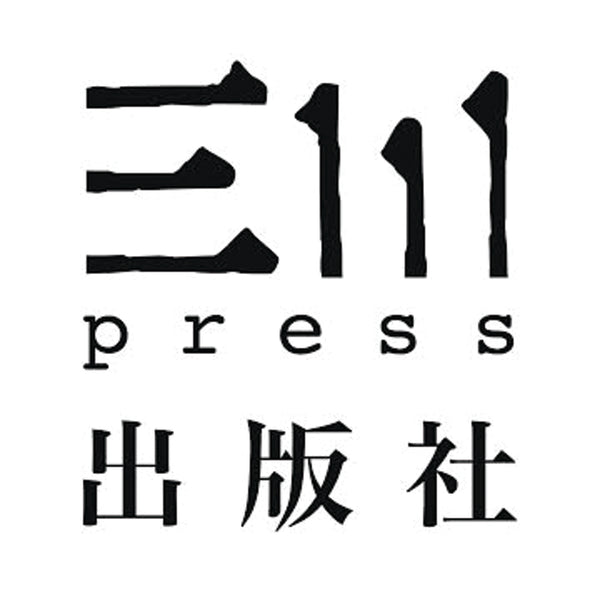Searching for George Orwell in Burma (Second Edition)
Searching for George Orwell in Burma (Second Edition)
In stock
Couldn't load pickup availability
出版社: 卫城出版
ISBN/EAN: 9789860673463
出版日期: 2021-09-01
页数: 320页
语言: Traditional Chinese
Myanmar's difficult journey towards freedom and democracy,
Did George Orwell predict this in his novel?
Without Burma, there would be no George Orwell!
A country with an unfortunate fate
The most incisive novelist of the 20th century
Retracing Orwell's footsteps in Burma in the 1920s, and understanding Burma's difficult road to freedom
Myanmar produced the 20th century's most incisive novelist
In the 1920s, before George Orwell became a world-famous novelist, he was a member of the British Imperial Police stationed in Burma, the place where his literary career began.
Did George Orwell predict the difficulties Myanmar would face in its transition to liberal democracy?
Orwell's five years in Burma profoundly shaped him. His novel, like an allegory, foreshadowed Burma's fate. Soon after Burma gained independence from Britain in 1948, a military dictatorship cut off contact with the outside world, launched a "Burmese-style socialist path," implemented surveillance, and encouraged informing, reducing Burma to one of the poorest countries in Asia.
Today's Myanmar, a nation still struggling under totalitarianism. <br /> Was George Orwell truly a prophet? What experiences in Burma gave him such profound insights into politics and human nature? Even his final, unfinished novel was conceived based on his experiences there. Author Emma Larkin travels extensively throughout Myanmar, tracing Orwell's footsteps while observing contemporary Burma, offering a glimpse into the lives of Burmese people living under totalitarian rule.
In 2020, Myanmar's military coup shocked the world. From British colonial rule to a half-century of military rule after independence, Myanmar, once the world's breadbasket, was plunged into a state of devastation. It became a strange place where everyone was under tight surveillance and truth and fiction were indistinguishable. The Myanmar government not only held a large number of political prisoners, but also, due to the dictator's incompetence and obstruction, the 2008 Cyclone Nargis killed 140,000 people. At the end of 2010, pro-democracy leader Aung San Suu Kyi, who had long been under house arrest, was finally released. In early 2012, she ran for re-election. The world watched closely to see whether this beleaguered nation of pagodas could successfully begin its transformation. However, the 2020 military coup and the subsequent bloody crackdown on civilian protesters made it clear that Myanmar had once again fallen off the narrow corridor of freedom.
Why is Myanmar's path to freedom and democracy so difficult? Author Emma Larkin looks for the answer in Orwell's life and works.
Ranked among the greatest political novelists of the 20th century, George Orwell spent five years in Burma as a young imperial police officer, yet little is known about the influence of this experience on his fiction. His Burmese Days, Animal Farm, and Nineteen Eighty-Four, a trilogy of allegories capturing the tragic history of modern Burma, have earned him the nickname "Prophet" among Burmese intellectuals.
Emma Larkin, an American journalist fluent in Burmese, has made numerous undercover visits to Myanmar since the 1990s. Retracing Orwell's travels through the country, she observed Burmese society firsthand and even organized book clubs with local intellectuals. In beautiful travelogues, Larkin unfurls the tragic story of Burma's rise from British colony to independence and then to totalitarian military rule. Not only does she deftly connect Orwell's life and writings with Myanmar's political and social landscape, she also vividly captures the words and actions of local people under repressive rule.
"Myanmar is like a woman with cancer. She knows she has cancer, but she goes on with her life as if nothing is wrong. She refuses to see a doctor. She talks to people, and people talk to her. They know she has cancer, and she knows she has cancer, but no one says anything."
Emma Larkin
Emma Larkin is a pseudonym for an American journalist. Born and raised in Asia, she studied Burmese at the School of Oriental and African Studies, University of London. Based in Bangkok, she has reported extensively across Asia, having conducted numerous private interviews in Burma since the 1990s. In addition to this book, her other publications include Everything is Broken: A Tale of Catastrophe in Burma, No Bad News for the King: The True Story of Cyclone Nargis and Its Aftermath in Burma, and Comrade Aeon's Field Guide to Bangkok .
Huang Yuwen
A senior translator, his translations include "The Voice of the King: The Moment of War", "The Duck Won the Lotto", "Why Keynes?", "The History of History: Historians and Their Historical Era", and "We Are the Happiest: The Real Life of the North Korean People".
Introduction: The Brand of Authoritarianism Yang Zongli / Former Secretary-General of Amnesty International Taiwan and spokesperson for the Taiwan Free Burma Network, currently a political worker Introduction: Orwell, Burma, and Totalitarianism Zhang Tiezhi / Writer, cultural and political commentator
Prologue Map
Mandalay Delta Yangon Mawlamyine Khasar
Postscript New Postscript Acknowledgments
Share


